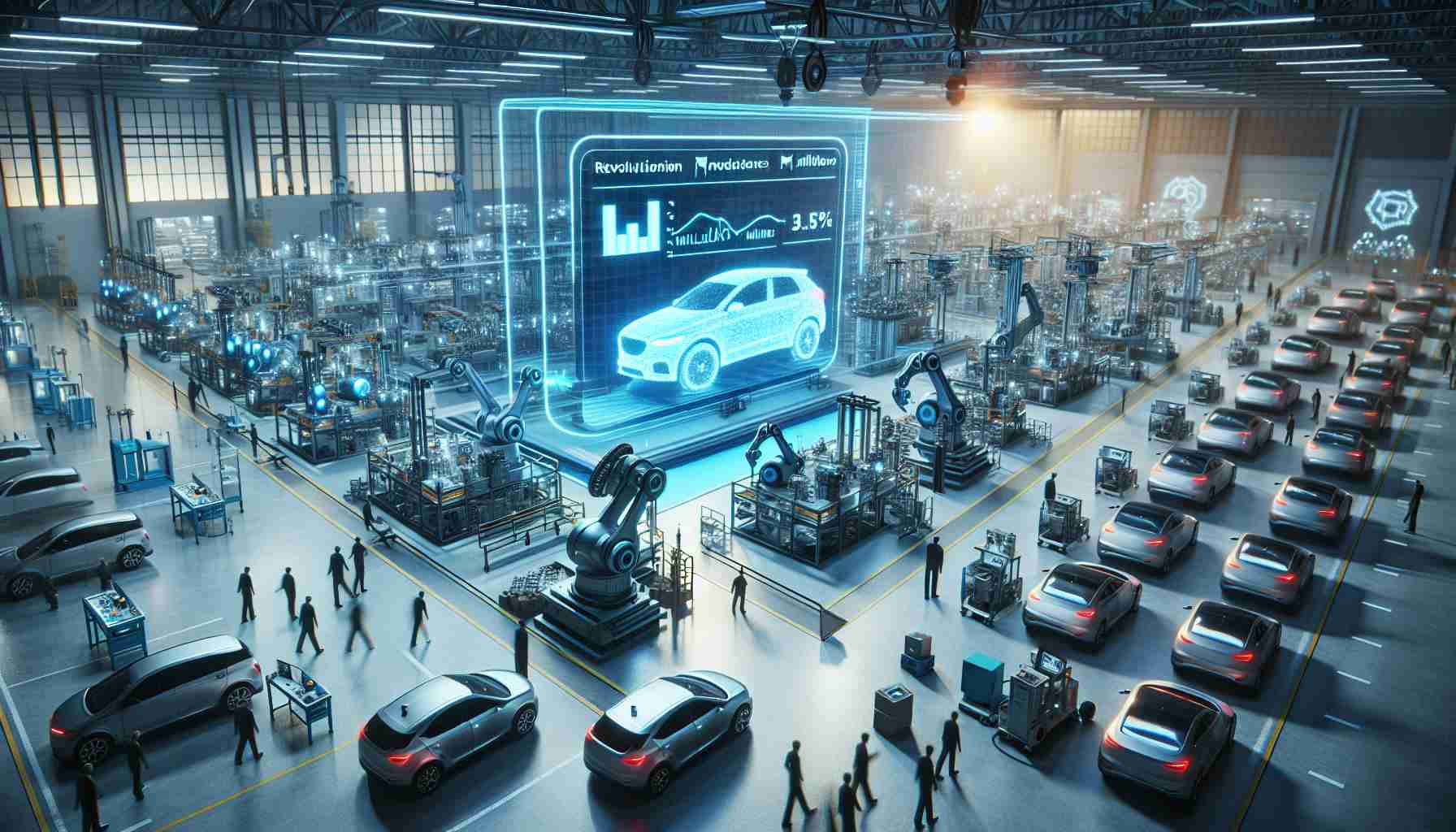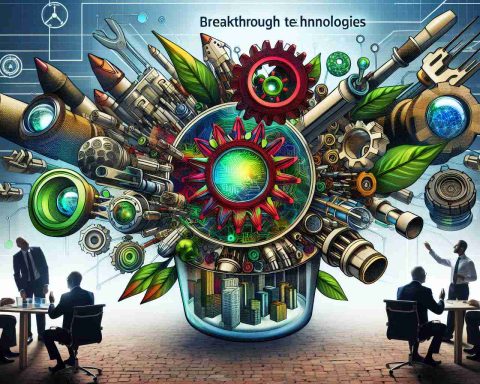Breaking Down the Future of Battery Manufacturing
In a groundbreaking initiative, Schneider Electric has joined forces with Liminal Insights to launch an innovative ultrasound-based inspection solution tailored for the electric vehicle (EV) battery manufacturing sector. This collaboration aims to tackle persistent issues faced by battery producers, notably high scrap rates and the urgent demand for accelerated production capabilities.
By integrating cutting-edge ultrasound technology, manufacturers can potentially reduce scrap rates by up to 15%, translating into significant cost savings. This is crucial as a mere 1% reduction in scrap could equate to a staggering $10 million boost in annual profits for a typical operation producing at a 10 GWh scale.
The partnership’s ultrasound solution not only enhances production quality and efficiency but does so while maintaining safety standards. With no radiation involved, the need for cumbersome safety protocols is entirely eliminated, streamlining compliance processes.
With features such as seamless end-to-end integration into existing manufacturing workflows and adaptability for various battery cell types, this initiative is poised to future-proof operations in a rapidly evolving industry. An eight-hour decrease in cell-finishing processes could also yield savings of up to $3 million annually, propelling production efficiency to new heights.
This collaboration marks a significant leap toward more sustainable and efficient EV battery production, empowering manufacturers to seize the growing market opportunities while ensuring product reliability and safety.
The Wider Implications of Innovative Battery Manufacturing Solutions
The recent collaboration between Schneider Electric and Liminal Insights highlights the urgent need for innovation in the electric vehicle (EV) battery manufacturing sector, a field that stands at the intersection of technology, sustainability, and the global economy. As the demand for electric vehicles surges, driven by climate policies and consumer preferences, the ability to efficiently produce reliable batteries becomes ever more critical. Innovations like the ultrasound-based inspection system not only promise to enhance production quality but also mitigate supply chain vulnerabilities that could ripple through various sectors.
On a societal level, the success of sustainable battery manufacturing has profound implications. As manufacturers reduce production costs and environmental impacts, they can potentially lower EV prices, making greener transportation accessible to a broader audience. This democratization of technology supports the transition to low-carbon economies and can stimulate job creation in manufacturing and research sectors.
Moreover, the environmental ramifications are significant. Utilizing ultrasound technology can contribute to more sustainable practices by reducing waste and emissions associated with battery production. The shift toward greener manufacturing tactics aligns with global efforts to combat climate change, particularly as the automotive industry is one of the largest contributors to greenhouse gas emissions.
Looking ahead, the integration of such advanced manufacturing processes may set a precedent for other industries to follow suit, fostering a culture of innovation that emphasizes sustainability. As automobile manufacturers respond to market pressures and regulatory demands, the evolution of EV battery production may catalyze advancements in related fields, solidifying the trend toward more environmentally responsible manufacturing practices.
Revolutionizing Battery Manufacturing: The Future Is Here!
Breaking Down the Future of Battery Manufacturing
The landscape of electric vehicle (EV) battery manufacturing is on the brink of a major shift, thanks to the recent partnership between Schneider Electric and Liminal Insights. This collaboration has birthed an innovative ultrasound-based inspection solution designed to address critical challenges within the industry, such as high scrap rates and the pressing need for faster production processes.
# Cutting-Edge Ultrasound Technology
By harnessing advanced ultrasound technology, this new solution enables manufacturers to significantly minimize scrap rates, potentially reducing them by up to 15%. This profound reduction in waste translates into substantial financial benefits; for example, achieving a mere 1% reduction in scrap could boost annual profits by approximately $10 million for a facility operating at a 10 GWh production capacity.
# Safety and Compliance Improvements
One of the most appealing aspects of this ultrasound technology is its safety profile. Unlike traditional inspection methods, the ultrasound solution is free from radiation, thus eliminating the need for extensive safety measures and related complicacies. This not only simplifies compliance processes but also creates a safer working environment for employees.
# Integration and Flexibility
The ultrasound inspection solution boasts seamless end-to-end integration with existing manufacturing workflows, making it easy for battery producers to adopt this technology. Moreover, it is compatible with a variety of battery cell types, thus catering to the diverse needs of the evolving electric vehicle sector.
# Enhancing Production Efficiency
In addition to reducing scrap rates, the ultrasound solution can significantly cut down on the time required for cell-finishing processes. Preliminary data suggests that manufacturers could see an eight-hour decrease in these processes, resulting in potential savings of up to $3 million annually. Such improvements in operational efficiency are crucial in a competitive market where time translates to opportunity.
# The Path Toward Sustainability
This innovative partnership is a step forward in promoting sustainable and efficient EV battery production. As the demand for electric vehicles continues to rise, manufacturers are under pressure not only to increase production rates but also to ensure the reliability and safety of their products. By implementing this ultrasound technology, they can address both priorities simultaneously.
# Market Trends and Insights
The electric vehicle market is expected to continue its rapid growth, fueled by environmental concerns and advancements in technology. As manufacturers look to expand their capabilities, innovations like the ultrasound inspection solution will become increasingly critical. This trend underscores the importance of continuous improvement in production methods to keep pace with market demands.
# Limitations and Considerations
While the ultrasound inspection technology presents numerous benefits, manufacturers must consider the initial investment costs associated with new equipment and training. Additionally, ongoing maintenance and technological updates will be necessary to ensure optimal performance and efficiency.
In summary, the collaboration between Schneider Electric and Liminal Insights signals a transformative era for EV battery manufacturing. With groundbreaking technology at their disposal, manufacturers are well-positioned to harness new market opportunities while promoting sustainability, safety, and efficiency in production.
For more insights into electric vehicle technology and sustainability innovations, visit Schneider Electric.


















